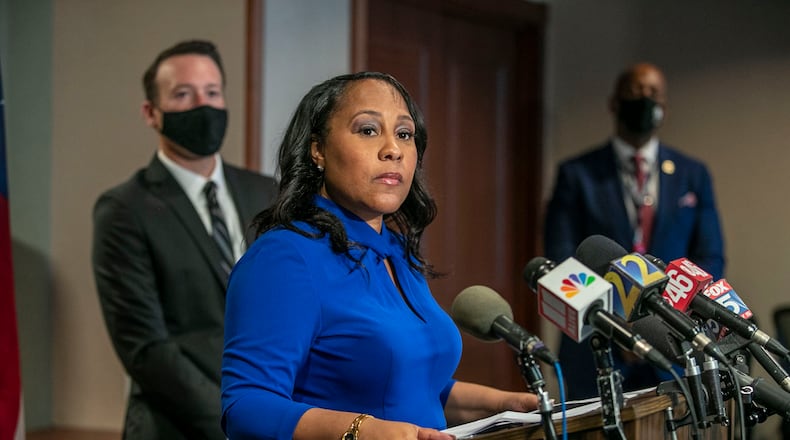An influential national legal organization asked the Georgia Supreme Court on Friday to block a law that gives the state new powers to sanction or oust prosecutors, arguing that legislators overstepped their authority when they created the commission.
The two-page brief filed by the Association of Prosecuting Attorneys came in response to concerns aired earlier this month by the state’s top court, which questioned whether it had the legal authority to approve rules that implement the Republican-backed law.
“While the legislature has the power to make laws, those laws cannot be inconsistent with the Georgia Constitution,” read the filing, which was signed by David LaBahn, the group’s chief executive, and former Democratic state Sen. Jen Jordan, who lost a 2022 bid for Attorney General. It described the commission as “unlawful.“
The commission is being closely watched partly because Donald Trump’s allies aim to use the new law to punish Fulton County District Attorney Fani Willis for seeking election interference charges against the former president.
The court’s narrow question didn’t seek to resolve the broader issue of whether state lawmakers flouted their authority by establishing the panel, as a bipartisan group of district attorneys argued in a separate pending legal challenge.
Instead the court asked whether the judiciary has the constitutional powers to approve the Prosecuting Attorneys Qualifications Commission’s rules and code of conduct, as required by the law.
The commission on Friday issued a two-page response that pointed to a 2000 decision that found the top court had “express responsibility for administering the entire judicial system.”
But it added that it “appears to be an unanswered question of law in Georgia” as to whether district attorneys are in the executive branch or judicial branch.
Credit: Hyosub Shin/AJC
Credit: Hyosub Shin/AJC
Gov. Brian Kemp and other Republicans urged lawmakers to adopt Senate Bill 92 to reprimand “rogue” prosecutors, and it passed over the objections of Democrats who said it would defy the will of voters.
The law is among a spate of Republican-led efforts nationwide to exert more control over liberal prosecutors they accuse of neglecting their duties because they refuse to enforce low-level drug offenses, anti-abortion restrictions and tough-on-crime crackdowns.
But it’s also attracted scrutiny because supporters and critics both argue it could be deployed against prosecutors investigating Trump.
That’s what happened last month when Georgia Senate GOP leaders filed a formal complaint to the commission seeking to sanction Willis, even though Kemp and House Speaker Jon Burns said there’s no evidence that the Fulton prosecutor violated state law.
The complaint doesn’t specifically mention Trump, but it contends that Willis “improperly cherry-picked cases to further her personal political agenda.” It asked the commission to initiate an investigation and take “appropriate measures” to sanction her.
Even if the rules are adopted, it’s unlikely a complaint against Willis would succeed. The commission proposed that any conduct that took place before the regulations are approved won’t be subject to discipline. Willis brought the charges in August, and the court still has yet to approve the standards.
About the Author
The Latest
Featured




